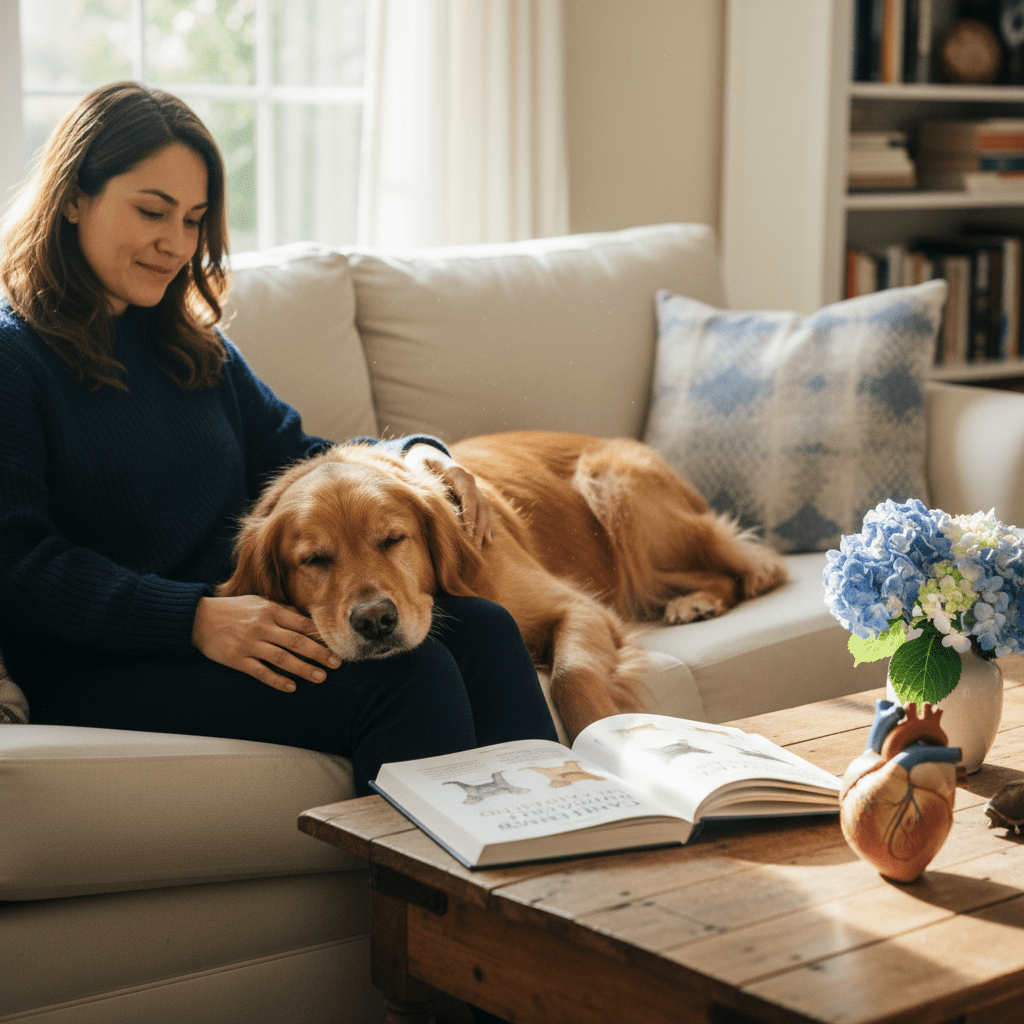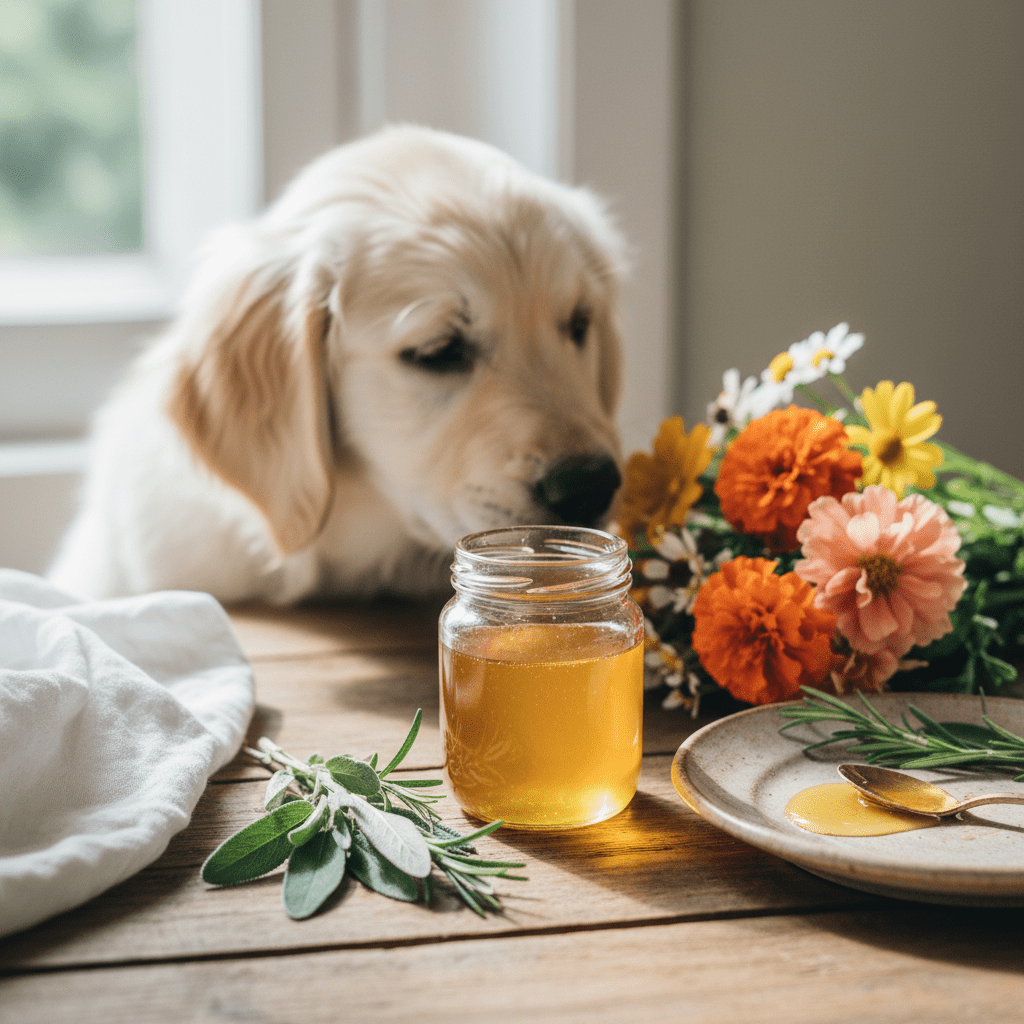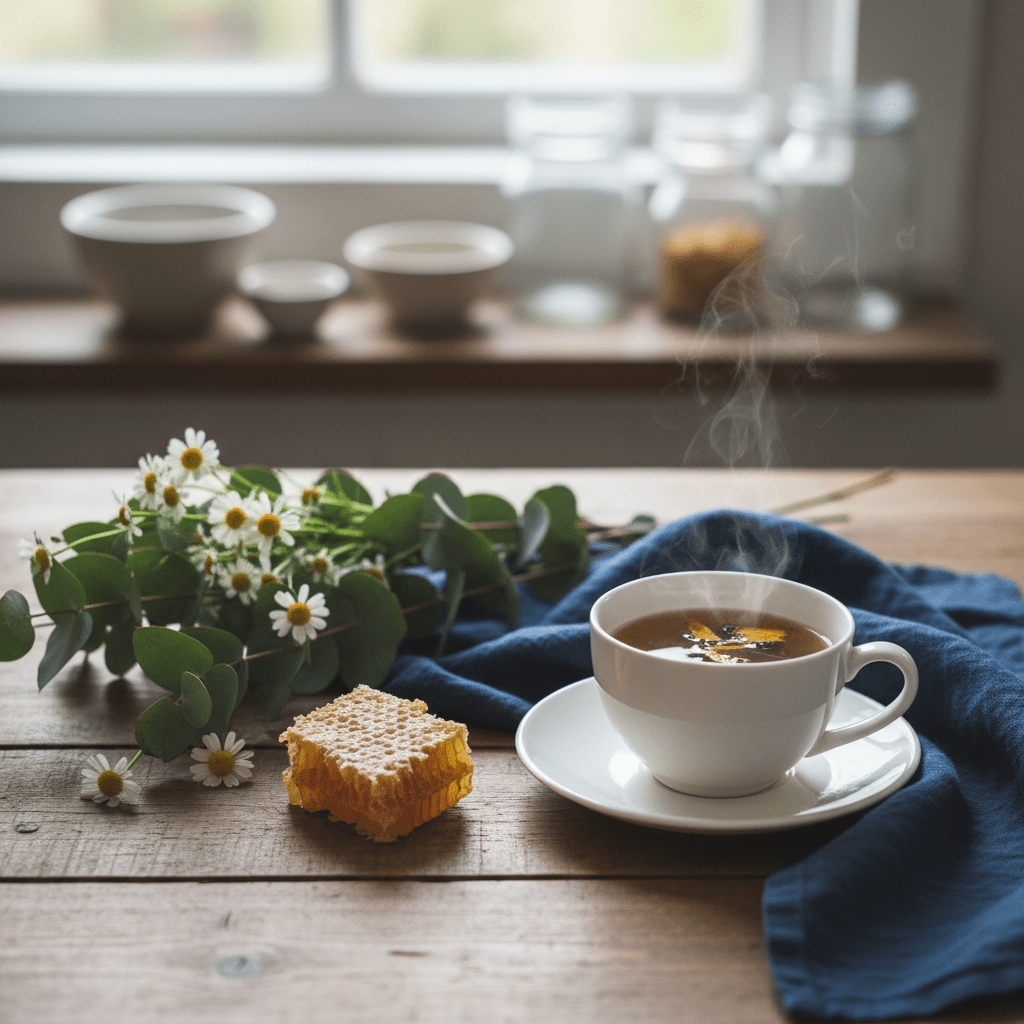Key Takeaways
- Dog loyalty means a dog consistently chooses their owner for affection, protection, and companionship.
- It reflects devotion, trust, and an unwavering bond between a dog and their owner.
- Dog loyalty is rooted in both instinct and deep emotional connection.
Table of Contents
- What Does "Dog Loyalty" Really Mean?
- The Science of Loyalty: Why Dogs Bond Deeply With Us
- How Dogs Show Loyalty in Daily Life
- Can You Grow a More Loyal Dog? Secrets to Stronger Bonds
- Most Loyal Dog Breeds, And Why Any Dog Can Be Devoted
- When Loyalty Gets Complicated: Common Problems (And Hopeful Solutions)
- Nurture Loyalty Naturally: BestLife4Pets Remedies & Community Proof
- FAQs: Everything You Wondered About Dog Loyalty
- The Lasting Bond: Nurturing Lifelong Dog Loyalty
What Does "Dog Loyalty" Really Mean?
The loyalty of animals, particularly dogs, stems from three powerful biological forces working together. First, pack mentality drives dogs to form protective social groups, and you've become their chosen family. This instinct helped wild dogs survive by cooperating and sharing resources.
Positive support for anxiety and stress can help reinforce the bond between you and your dog, especially if your pet is prone to nervousness or separation issues.
Oxytocin, the same hormone released when humans hug, floods both you and your dog during positive interactions. Research shows that when dogs make eye contact with their owners, oxytocin levels spike in both species within minutes. This creates a genuine chemical bond that strengthens over time.
For dogs with skin sensitivities or allergies that can affect their comfort and trust, a healthy skin & coat remedy can support their overall wellbeing and help maintain a positive relationship.
| Loyalty Root | How It Works | Everyday Example |
|---|---|---|
| Pack Instinct | Bonds form for survival and protection | Dog follows you room to room |
| Oxytocin Release | Hormone fosters trust and attachment | Dog gazes lovingly during petting |
| Selective Breeding | Traits chosen over generations | Certain breeds naturally "velcro" to owners |
Selective breeding amplified these natural tendencies. Humans chose the most cooperative, bond-forming dogs to reproduce, creating breeds like Border Collies and Labs that seem hardwired for human partnership. This isn't just training, it's thousands of years of evolution favoring dogs that love us back.
The Science of Loyalty: Why Dogs Bond Deeply With Us
Dogs have evolved alongside humans for thousands of years, developing a unique ability to read our emotions and respond with empathy. Studies show that when dogs interact with their owners, both experience a surge in oxytocin, the "love hormone", which deepens the bond and trust between us. This mutual connection is why dogs often seem to know exactly when we need comfort or companionship.
How Dogs Show Loyalty in Daily Life

Loyal dogs express their devotion through consistent, heartwarming behaviors that go far beyond basic obedience. Following you from room to room isn't clinginess, it's your dog choosing your company over solitude. Waiting by the door for your return, even when they could be napping elsewhere, shows they prioritize your presence.
Loyalty Check: Does your dog comfort you when you're upset? Research confirms dogs can sense human emotions and will often approach with gentle nuzzles or simply sit close when their owners are distressed.
Other genuine loyalty signs include joyful greetings after even brief absences, gentle protectiveness without aggression, and choosing to sleep near you when they have other comfortable options. When Jasper the rescue mutt started bringing his favorite toy to his new dad during tough workdays, that wasn't coincidence, that was animal loyalty in action, offering comfort the only way he knew how.
For more tips on supporting your dog's emotional health, read how to calm down a stressed dog.
Can You Grow a More Loyal Dog? Secrets to Stronger Bonds
Positive reinforcement builds trust faster than any other method. Consistent praise, treats, and gentle guidance create secure attachment within weeks. Aim for daily training sessions of just 5-10 minutes, dogs respond to routine and predictability, strengthening their confidence in your leadership.
Gentle calming remedies can be especially helpful during training or when introducing new routines, ensuring your dog feels safe and supported.
Consistent routines are loyalty goldmines. Feed, walk, and play at roughly the same times daily. This predictability helps anxious or rescue dogs understand they can depend on you, fostering deeper bonds. Enrichment activities like new walking routes, scent games, or puzzle toys 3-5 times weekly keep your relationship fresh and engaging.
Special Note for Rescue Dogs: Healing trust after trauma requires patience and gentle leadership. Never force contact, let them approach you. Some rescue dogs take months to fully open up, but the loyalty that follows is often the strongest you'll ever experience.
Most Loyal Dog Breeds, And Why Any Dog Can Be Devoted
Certain breeds were specifically developed for human partnership. Labrador Retrievers excel at reading emotions and eager-to-please attitudes. German Shepherds combine intelligence with protective instincts. Cavalier King Charles Spaniels were bred purely for companionship, creating naturally affectionate personalities.
However, breed matters less than relationship. Some of the most devoted companions are mixed breeds from shelters who seem to understand they've been given a second chance. The loyalty dog owners experience often depends more on consistent care, training, and emotional connection than pedigree papers. A well-loved mutt can be just as devoted as any purebred, sometimes more so.
To learn more about breeds known for their devotion, check out the top 10 large dog breeds and what makes them loyal companions.
When Loyalty Gets Complicated: Common Problems (And Hopeful Solutions)

Sometimes dog loyal behavior can become overwhelming. Velcro dog syndrome occurs when your pup bonds exclusively with one family member, following them everywhere while ignoring others. Separation anxiety manifests as destructive chewing, excessive whining, or house accidents when you leave, signs that loyalty has tipped into distress.
Joint health & mobility support can also play a role in your dog's comfort and confidence, especially for older pets who may become more anxious or attached as their mobility changes.
Possessive loyalty shows up as growling when others approach you or resource guarding behaviors. While protection instincts are natural, aggressive responses need gentle correction. These issues often stem from insecurity rather than true devotion, and they're completely manageable with patience.
Quick Solution: Include other family members in daily walks, feeding, and play sessions. This broadens your dog's "circle of trust" and prevents over-attachment to one person.
Create calm transitions by keeping hellos and goodbyes low-key for the first few minutes. Natural support can help too, Best Life 4 Pets homeopathic pellets support your dog's natural calm during stressful transitions, helping maintain emotional balance without harsh chemicals. For persistent behavioral changes or destructive habits, consult your veterinarian or a certified dog trainer.
Not a substitute for professional veterinary advice.
Nurture Loyalty Naturally: Best Life 4 Pets Remedies & Community Proof
Building loyal dogs requires consistent care, and our homeopathic pellets support this journey naturally. These easy-to-dose, tasteless pellets integrate seamlessly into daily routines, perfect for anxious rescue pups or senior dogs experiencing age-related stress. Our gentle formulas support the body's own healing processes, helping maintain calm and trust without harsh side effects.
Real Success Story: "Rosie the senior Lab had stopped greeting us at the door after her arthritis worsened. Within weeks of consistent training and Best Life 4 Pets natural support, she was trotting to welcome us home again, tail wagging like her younger days." - Sarah M., Ontario
Every purchase supports rescue pets finding their forever families, creating a community of caring pet parents who choose animal loyalty and natural wellness. Our pellets work alongside positive training and consistent routines to help your dog feel secure, confident, and deeply bonded with your family. Try a gentle Best Life 4 Pets formula tailored to your dog's specific needs and join thousands of pet parents nurturing loyalty the natural way.
For more on joint issues that can affect loyalty and comfort, read about hip dysplasia in dogs, signs, and treatments.
FAQs: Everything You Wondered About Dog Loyalty
Why are dogs considered the most loyal pets?
Dogs evolved alongside humans for over 15,000 years, developing pack instincts that naturally extend to human families. Their oxytocin response creates genuine emotional bonds. For a deeper dive into the science, see this research on dog-human bonding.
Can loyalty change over time?
Yes, dogs loyalty can deepen with consistent care or shift if routines change dramatically. Rescue dogs often become more loyal as trust builds.
Is it possible to "train" loyalty?
You can't force devotion, but positive reinforcement, consistent routines, and patient bonding naturally encourage loyal dogs behavior.
Do cats show loyalty the same way?
Cats express animal loyalty more subtly, through purring, following routines, and choosing to stay near you rather than dramatic greetings.
What makes a dog pick one person over another?
Usually whoever provides food, walks, and consistent positive interaction becomes the primary bond. This can shift with effort from other family members.
How can I help my rescue dog open up?
Give them space initially, maintain predictable routines, use gentle positive reinforcement, and let them approach you first. Trust builds gradually.
The Lasting Bond: Nurturing Lifelong Dog Loyalty

Understanding why dogs are loyal transforms how we care for them. Their devotion isn't just instinct, it's a choice they make daily based on the trust, consistency, and love we provide. Whether you're welcoming a puppy or helping a senior rescue dog feel secure, the principles remain the same: patience, positive reinforcement, and genuine connection.
Loyal dogs thrive when their physical and emotional needs are met naturally. This means consistent routines, gentle training, and support for their overall wellbeing through life's transitions. The loyalty of animals like dogs reminds us that the strongest bonds grow slowly, built on mutual respect and understanding rather than quick fixes.
Future Consideration: As our dogs age, their expressions of loyalty may change, less jumping at the door, more quiet companionship. Recognizing these shifts helps us appreciate their devotion in new ways while supporting their changing needs.
The science behind animal loyalty continues evolving, but the heart of the matter stays constant: dogs choose us because we choose them back. Every gentle interaction, every patient training session, every moment of comfort during stress builds the foundation for a loyalty dog relationship that enriches both your lives. Nurture this bond naturally, celebrate the small moments of connection, and trust that your dog's devotion grows stronger with each passing day. For further reading, see this study on prosocial helping in dogs.
Frequently Asked Questions
What biological factors contribute to a dog's loyalty towards their owner?
A dog's loyalty comes from a mix of pack instincts, oxytocin-driven bonding, and their ability to read human emotions. These forces work together to create trust, protection, and a strong social connection with their chosen family.
How does oxytocin influence the bond between dogs and humans?
Oxytocin, often called the 'love hormone,' is released in both dogs and humans during positive interactions like eye contact and petting. This hormone fosters trust and deepens the emotional attachment, strengthening the bond over time.
Can the loyalty of a dog be enhanced through training or specific practices?
Yes, loyalty can grow through consistent positive support, gentle training, and nurturing your dog's emotional needs. Building trust and reducing anxiety helps reinforce the bond, encouraging your dog to choose you as their lifelong companion.
Which dog breeds are known to be the most loyal, and why are some breeds more naturally devoted?
Breeds like Border Collies and Labrador Retrievers are often seen as especially loyal because selective breeding emphasized traits like cooperation and attachment. However, any dog can be devoted, as loyalty is shaped by both genetics and the quality of the relationship you build together.



